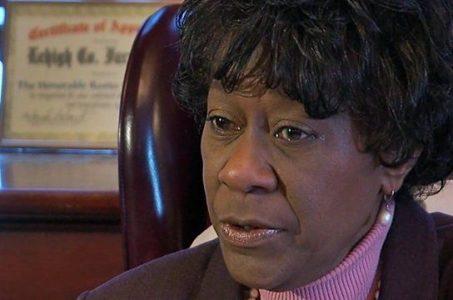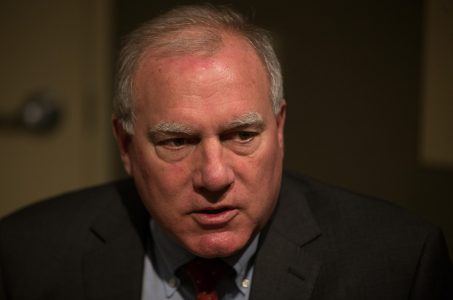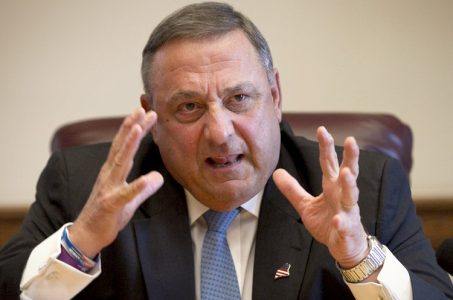Georgia Gambling Ballot Referendum and Online Sports Betting Bill Fail
Posted on: July 6, 2020, 09:40h.
Last updated on: July 6, 2020, 02:58h.
A Georgia gambling ballot referendum that would have asked voters whether they want to authorize commercial casinos, and a separate online sports betting bill, both failed to pass the state legislature before it adjourned last week.

If a two-thirds majority in both chambers of the General Assembly would have approved Senate Resolution 841, Georgians would have decided on legalizing casinos, parimutuel wagering on horse racing, and sports betting during this November’s election. Rep. Ron Stephens (R-Savannah), author of the constitutional referendum, blamed his own party in the upper chamber for signaling early in the 2020 session that gambling would not be a priority.
I don’t understand how we can sit up in Atlanta and tell folks they’re not allowed to vote for themselves,” said Stephens last week. “It’s 50,000 permanent jobs, $1 billion in new revenue, no tax incentives, and local control. That’s four things that are hard to vote against.”
The defeat means that Speedway Motorsports, the private company that owns Atlanta Motor Speedway, will not be permitted to pursue transforming the racetrack south of Atlanta into an entertainment and tourism destination. While gambling was being considered, track owners suggested they would be interested in investing $1 billion to build a casino resort with hotels, a convention center, theme park, and private residencies.
No Gamble on Sports Betting
Unlike the constitutional ballot measure that requires a two-thirds majority in the General Assembly, Senate Bill 403 needed only a simple majority to pass.
The legislation, introduced by Sen. Burt Jones (R-Jackson), would have allowed the Georgia Lottery to issue online sports betting licenses to interested operators and regulate the expanded gambling. Sportsbook operators would have ponied up a $900,000 annual licensing fee to the state upon approval. They would also have their sports betting revenue taxed at 20 percent.
Jones forecast that mobile sports betting would have resulted in $60 million in yearly new tax revenue. But just as the gambling referendum failed, internet sports wagering did, too.
The sports betting bill struggled to gain momentum primarily because of Governor Brian Kemp’s (R) opposition to gambling. While the governor said he would not stand in the way of a constitutional question giving voters the power to decide to lift the state’s casino prohibition, he said he would veto gaming bills that don’t have the public’s support.
Budget Woes Could Improve Gaming Odds
The crusade to bring gambling to the Peach State is not over. The state budget adopted by lawmakers last month cuts spending by 10 percent and calls for further reductions should the financial impact of COVID-19 linger.
Stephens believes further financial budget problems will bring more state lawmakers to his side.
“Right now, we’re not having to lay off teachers or let prisoners go. Next year, if we come back here and have real budget problems again and the federal stimulus money is not coming back, we’re going to be in deep doo-doo,” opined Stephens.
Related News Articles
Pennsylvania Omnibus Gambling Bill Presented to House
Connecticut AG Casts Doubt on Satellite Casino Proposal
Most Popular
LOST VEGAS: ‘Tony The Ant’ Spilotro’s Circus Circus Gift Shop
Las Vegas Overstated F1 Race’s Vegas Impact — Report
Mega Millions Reportedly Mulling Substantial Ticket Price Increase
Las Vegas Strip Stabbing Near The Strat Leaves One Man Dead
Most Commented
-
End of the Line for Las Vegas Monorail
— April 5, 2024 — 90 Comments -
Mega Millions Reportedly Mulling Substantial Ticket Price Increase
— April 16, 2024 — 8 Comments -
Long Island Casino Opponents Love New York Licensing Delays
— March 27, 2024 — 5 Comments -
Smart Video Poker Players Hamper Casino Profits, Says Study
— March 21, 2024 — 4 Comments
















Last Comments ( 2 )
Twenty percent tax on sports betting and "the lottery" runs it? It needed to die. Would only amplify the illegal market. These lawmakers must think we're stupid, like there's no way to bet offshore right now.
Wow